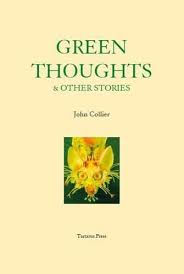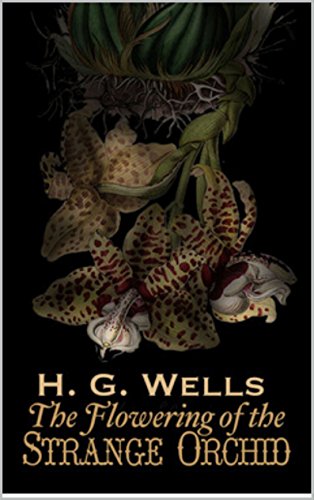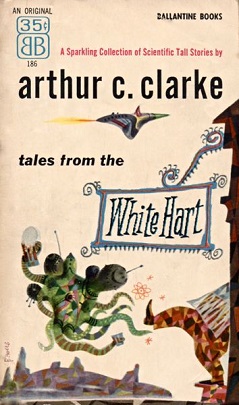“There are such queer things about orchids…such possibilities of surprises” (H. G. Wells).
There is something about plant horror that stirs imagination like few other things, and evidence of this is the success of such astonishingly-premised books and films as The Day of the Triffids [1951], Invasion of the Body Snatchers [1956] and Annihilation [2014]. Orchids, in particular, have gathered quite a dark reputation over the decades, and academics like to link this reputation to orchids symbolising (the dark sides of) female sexuality. Also, just as there once was “tulipomania” in Holland in the 17th century, there was also once “orchidmania” in the 19th century, with the orchid becoming an obsession among botanists and travellers alike. Naturally, the more exotic the orchid was, the more it was sought after.
Below are three classic short stories that focus on “monster” orchids, and the interesting thing is that each of the stories below are connected through the “chain of inspiration”: Arthur C. Clarke’s story was inspired by H. G. Wells’s one, and Clarke and Collier’s stories provided inspiration for the horror-comedy films Little Shop of Horrors [1960] and [1986]. Two other books on a similar topic on my TBR list are Plants in Science Fiction: Speculative Vegetation by Katherine E. Bishop (ed.), and Plants That Kill: A Natural History of the World’s Most Poisonous Plants by Elisabeth A. Dauncey.



I. Green Thoughts [1932] by John Collier – ★★★★
In this short story, Mr. Mannering receives a strange-looking, mysterious orchid root, plants it and sees it growing exponentially in time. He thinks that this is a new, yet undiscovered specimen, and is supremely happy. However, soon, strange disappearances occur around Mr. Mannering: first, the cat disappears and, later, his Cousin Jane. More suspiciously, the new plant’s prominent buds seem to grow in size with each strange disappearance. This densely-written story is quite thought-provoking with a touch of Kafkaesque morbidity to it, which makes it surprisingly psychological. Collier definitely took the story of the murderous orchid to a new level of disbelief and complexity.

II. The Flowering of the Strange Orchid [1905] by H. G. Wells – ★★★1/2
“Pride, beauty, and profit blossom together on one delicate green spike, and, it may be, even immortality”. H. G. Wells was definitely one of the pioneers of stories about murderous orchids, since such writers as John Blunt in The Orchid Horror [1911] and Gordon Philip England in White Orchids [1927] also emulated this theme. Wells’s classic short story centres on Winter-Wedderburn, a shy and lonely man who happens to grow and collect orchids. He always bemoans that nothing ever happens to him, but he is in for a surprise when he picks up a strange orchid root from a man from the Indies. This story starts gently and unassumingly, but soon morphs into something unexpected as it becomes apparent that the strange flower has designs of its own.

III. The Reluctant Orchid [1956] by Arthur C. Clarke – ★★1/2
“The plant certainly had an impression of alertness and menace more appropriate to the animal than the vegetable kingdom.” This short story talks about Hercules Keating, a socially-awkward office clerk with a penchant for all things growing in pots. One day, he receives one insignificant orchid root originating from “somewhere in the Amazon region”, and seeing its rapid growth and a disturbing taste for meat, starts to think that it may solve his problem of his domineering Aunt Henrietta, who always imposes herself on Hercules. The story is a quick and interesting read, though content is also too derivative (Wells and Collier’s stories come to mind) and heavy-handed, and the ending is a bit of a let-down, too.


I hadn’t noticed just how many science fiction stories involve orchids! That inspirational web is fascinating. H.G. Wells –> Arthur Clarke. Clarke and Collier –> Little Shop of Horrors.
LikeLiked by 2 people
Although, now that you mention it makes sense. Writers love orchids because we see ourselves in them haha. Especially weirdo sci-fi writers eh?🙂
LikeLiked by 1 person
https://www.tiktok.com/@igotchabish/video/7169831105326107909 Apologies for the poor quality, but your first paragraph reminded me of this scene from the new Netflix series, Wednesday.
LikeLiked by 1 person
Ha! Very on point, thanks, I enjoyed that! I am still to see this series, even for Burton & Elfman’s involvement. I hear the production ideas date back to the 90s, that’s also interesting.
LikeLiked by 1 person
Burton directs the first 4 episodes. And I didn’t even realize Elfman did the music! I know you like him. Furthermore, I feel like you and Wednesday have similar personalities. Shrewd, sharp-witted. So I think you are in for a treat if and when you watch.
LikeLiked by 1 person
I had no idea this was a theme! Such an interesting post.
LikeLiked by 1 person
Wonderful selection of tales you’ve researched and/or read, Diana! I shall certainly be on the hunt for these and similar tales now. 🙂
LikeLiked by 1 person
Wow, I wouldn’t have guessed that this was a thing! How fascinating!
LikeLiked by 1 person
Fascinating! Such parallels between the three stories too. I’ve never read Day of the Triffids but saw glimpses of the tv show as a child which was responsible for my first true nightmare. Still gives me the shivers.
LikeLiked by 1 person
I had no idea we could find so many orchids in this genre, talk about a niche! Amazing post, thanks for sharing
LikeLiked by 1 person
Thanks for stopping by and commenting! 🙂
LikeLiked by 1 person
Not an orchid, but plant horror nevertheless…Try Nathaniel Hawthorne’s short story “Rappacinni’s Daughter.” Disturbing in thousand ways…
LikeLiked by 1 person
I will do! Many thanks!
LikeLiked by 1 person